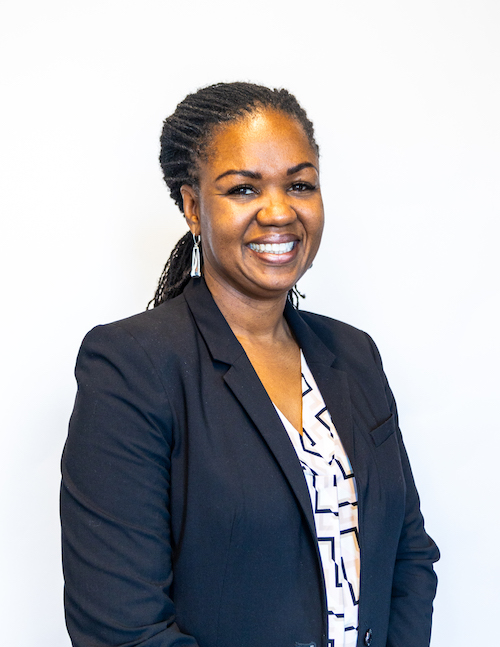Jamila Hodge: A proven approach to public safety rests on community, not prosecutors
Washington, DC, has a violence problem.
Earlier this year, federal crime statistics published by the FBI revealed that the nation’s big cities saw murder and violence plummet in 2023. Nationwide decreases were 13% and 6%, respectively.
But not DC. Homicides rose 36% and violent crime was up nearly 40% overall. Furthermore, before reaching these recent highs, DC had a higher gun violence rate than any of the 50 states, at an estimated cost of $2 billion annually.

Even with decreases thus far in 2024, residents are deeply concerned — and justifiably so. As a former DC prosecutor who worked on these cases for more than a decade at the U.S. Attorney’s Office, so am I.
But what concerns me even more is watching city leaders rely on tactics from an old playbook, one focused on the kind of punishment that created our mass incarceration crisis. I became a prosecutor to change the system from within, to push against the narrow, shortsighted, harmful strategies that have been integral for too long. To watch them gain new momentum is disheartening.
One particular subject of public and media scrutiny has been the city’s top prosecutor, Matthew Graves. Outspoken critics are focusing on Graves and his office — to bear the blame and come up with solutions. In truth, prosecutors are most often evaluated on metrics that don’t have anything to do with building public safety. For example, an office’s charging or “papering” rate — that is, how often a prosecutor files charges after an arrest — is one statistic that has received significant attention. A high number of papered cases most likely means the system is ensnaring more people who are in poverty, have substance abuse disorders, and/or have mental health conditions. Studies elsewhere have indicated that more than 80% of cases in the system involve low-level misdemeanors, not serious violent crime.
Our understanding of public safety is evolving before our eyes. Community is the key, not the prosecutor’s policies or papering rate. Cities across the nation are addressing the causes of violence — before harm arises — instead of the usual focus on prosecution and punishment after the fact.
There are many examples nationwide where this shift is bearing good fruit. Newark, New Jersey, has been a national leader. Once one of our most violent cities, it achieved historic lows in 2023. Albuquerque, New Mexico, has built a robust community-based system that fields tens of thousands of calls for service that might otherwise be directed to police.
Or look just up the road to Baltimore, where a strategy informed by public health is intervening in hundreds of incidents per year. Researchers suggest that the program has reduced homicides and shootings by about 25%.
Meanwhile, DC has not fully implemented two different public health approaches to gun violence prevention approved by the council and never fully supported by the mayor. The result: Many cities across the country — especially those implementing public health strategies, like Newark, Albuquerque and Baltimore — saw impressive declines in lethal gun violence in 2023. DC went in the other direction.
Despite institutional limitations, prosecutors can play a significant role in this transformation. They wield extraordinary power. But they are trained, as I was, to ask only about punishment, the foundation of our criminal legal system. We didn’t ask whether our actions made the community safer. We didn’t ask if a prosecution would cause more harm to the community. We weren’t even aware that we could ask different questions.
Before prosecutors can shift their perspective, though, we have to release them from measures like the papering rate. We also have to point them toward solutions that are right in front of them.
DC has many of the pieces in place to prioritize community-based solutions — the Office of Neighborhood Safety and Engagement is a key example — but city leadership has to more substantively and consistently support this approach instead of passing legislation that doubles down on punishment.
That means investing in Peace for DC, which trains community members to do life-saving work through a range of services — from violence intervention to bringing healing and mental health care to people who have experienced violence. Or supporting the TRIGGER Project, which empowers young people to tell their stories about gun violence while providing them with development opportunities that foster real safety.
I tried so hard as a prosecutor to make changes, but I ultimately couldn’t deny that our system was going to keep doing what it was designed to do: oppress and control Black people. And I have had to reckon with my role in that.
This is vital context when formulating public safety policies and strategies in what was once widely known as Chocolate City, the nation’s first majority-Black major city. Increasing the papering rate is one of several ill-advised suggestions now coming from Mayor Muriel Bowser and DC Councilmembers that will incarcerate more people.
Eight out of 10 arrests in DC are of Black people, despite the fact that they represent only about 41% of the overall population. So how the city builds public safety — for all of its people — is inextricable from the ongoing movement to build racial justice.
It’s long past time to stop depending on prosecutors for public safety solutions. Look and listen to your people. They know what they need.
Jamila Hodge is executive director of Equal Justice USA. She previously spent 12 years serving as an assistant U.S. attorney in the District of Columbia.
About commentaries
The DC Line welcomes commentaries representing various viewpoints on local issues of concern, but the opinions expressed do not represent those of The DC Line. Submissions of up to 850 words may be sent to editor Chris Kain at chriskain@thedcline.org.



Comments are closed.